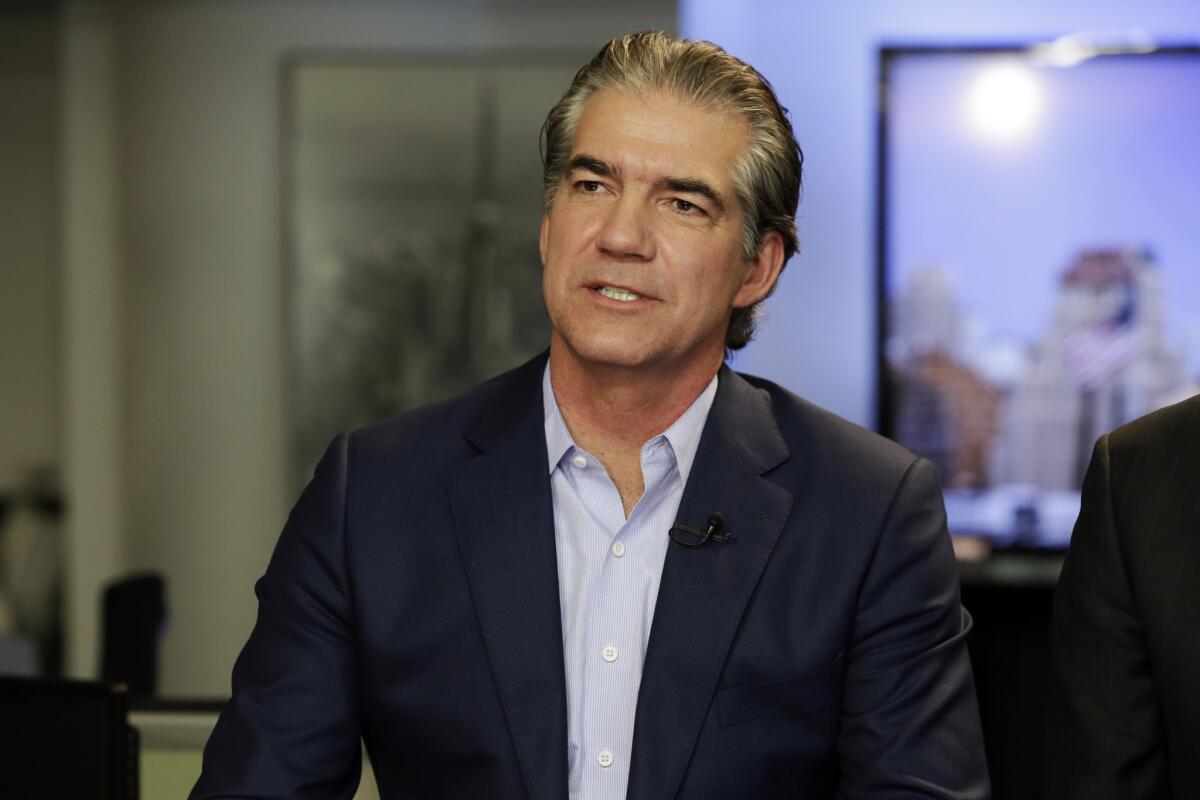SeaWorld CEO defends decision to halt breeding of killer whales

SeaWorld President and CEO Joel Manby speaks during an interview in New York on March 17.
SeaWorld Entertainment Inc. Chief Executive Joel Manby, in an online conversation with park supporters, said the company had no choice but to halt the breeding of killer whales or risk the eventual demise of its parks.
The choice, he said, became clear once the Orlando, Fla.-based theme park company closely reviewed the research on why some people were staying away from the marine parks. And the trends, he noted, were most notable among younger people.
“We understand some customers are upset and you may feel betrayed, but in a simple way, the data and trends showed it was either a SeaWorld without whales or a world without SeaWorld,” he said during the Wednesday webcast. “We are an organization that needs to have cash flow to [succeed] and unfortunately, the trends were not in our favor.”
See more of our top stories on Facebook >>
Manby’s remarks came just two weeks after SeaWorld said it would end breeding of its 29 killer whales and would be phasing out the theatrical Shamu shows at all three of its three namesake parks. The performances will be replaced with orca encounters — starting first in San Diego — that emphasize the animals’ natural behaviors.
Manby conceded that he struggled mightily with the decision, but the announced changes would not keep the company from straying from its mission: to protect animals and their habitats and to eventually become the leading animal rescue organization in the world.
Although the tide of public opinion concerning orcas clearly was turning, fueled in part by the 2013 documentary “Blackfish,” the “straw that broke the camel’s back,” Manby said, were legislative efforts in California to outlaw captive breeding. He cited a California Coastal Commission decision that would require SeaWorld to end the breeding of killer whales if it wanted to expand its orca tanks, a project that it has since abandoned.
Of all the SeaWorld parks, the attendance declines have been the most precipitous in San Diego, with visitation dropping more than 4% in 2015 and 17% in 2014.
ALSO
SeaWorld’s watershed change of heart on orcas
Here’s why SeaWorld probably won’t release its whales into the wild
‘Blackfish’ filmmaker ‘never imagined’ her documentary on SeaWorld would have such a major effect
More to Read
Inside the business of entertainment
The Wide Shot brings you news, analysis and insights on everything from streaming wars to production — and what it all means for the future.
You may occasionally receive promotional content from the Los Angeles Times.










